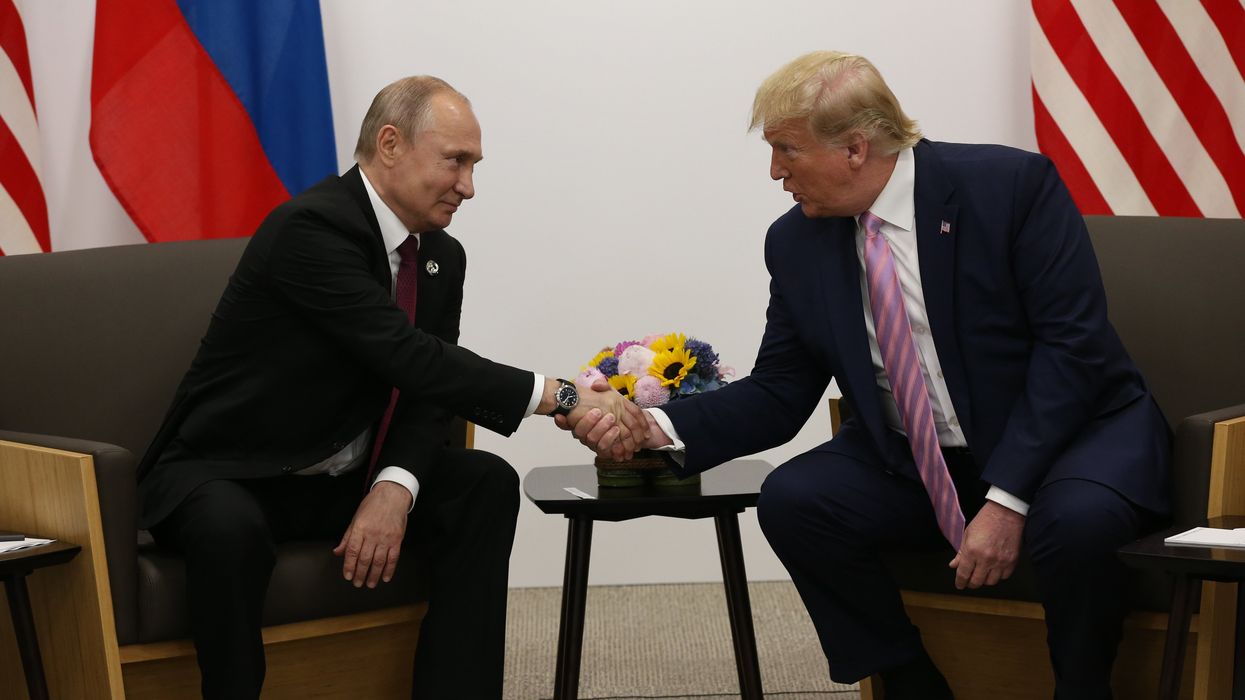Corbin is professor emeritus of marketing at the University of Northern Iowa.
Psychological scientists who study human behavior concur that past actions are the best predictor of future actions. If past actions caused no problem, then all is well. If, however, a person demonstrated poor behavior in the past, well, buckle up. The odds are very great the person will continue to perform poorly if given the chance.
Donald Trump’s past behavior regarding just one area of protecting American citizens — specifically national defense — tells us that if he becomes the 47th president, we’re in a heap of trouble. Examining Trump’s past national security endeavors needs to be seriously examined by Americans before voting on Nov. 5.
A vast majority of Americans recall how Trump cozied up to Russia as our rival assisted in his 2016 election with disinformation, misinformation and propaganda about Hillary Clinton. It’s no surprise that Trump repeated that same behavior when he and his friend Vladimir Putin — who he referred to as a “genius” — had Russia interfere on Trump’s behalf in the 2020 election. As reported by the conservative-oriented Wall Street Journal, election interference by Russia is already being repeated for the 2024 election.
Of major concern to journalists who write for the Wall Street Journal, which is owned by Rupert Murdoch’s News Corporation (Murdoch also owns Fox News), is Trump’s relationship with the CRINK nations — China, Russia, Iran and North Korea — and its effect on our national security.
Trump’s embrace of CRINK’s dictators as he plans for another term as president is disturbing as noted by the Journal article.
CRINK, along with a few of their allies, have formed an axis of evil that is in direct opposition to Western power, freedom and democracy. CRINK’s authoritarian-fascism rule is one Trump has embraced by the explicit praise he’s lathered on each of CRINK’s dictators.
Students of history know China has been trying to take control of Taiwan since 1954, Russia started attacking Ukraine in 2014, Iran began its anti-Israel stance in 1979 and the North Korea-South Korea conflict has been in existence since 1950. But Trump is not a student of history or international relationships; he’s a transactional individual who adores power-brokers.
On May 8, 2018, President Trump withdrew America from a 2015 nuclear deal with Iran. How’d that work out? On April 13, Iran launched more than 300 missiles on Israel. This act alone has caused U.S. intelligence services and international officials to conclude Iran poses a significant threat to America and its allies. For the record, Russia has a very large arsenal of around 6,000 nuclear warheads, China has over 400 and North Korea has 50.
Joseph Collins, a retired Army colonel who served as a deputy assistant secretary of defense for stability operations and is lifetime member of the Council on Foreign Relations, is critical of Trump’s record. He notes in addition to Trump ending the Iranian nuclear development agreement, little was gained by Trump withdrawing America from the Intermediate-Range Nuclear Forces Treaty with Russia, the Paris Climate Accord, the Trans-Pacific Partnership and the United Nations Human Rights Council and Health Organization.
Collins contends these series of Trump’s withdrawals has allowed “China and other powers to fill into the leadership vacuum. U.S. security partners are troubled by these developments and see them as evidence of a new, selfish neo-isolationism on the part of the nation that used to take pride in its leadership of the new world.”
Furthermore, Collins has seen first-hand that Trump has a dysfunctional decision-making style. It’s well documented the former president did not have long intelligence briefings, didn’t read detailed briefing materials, misplaced confidential documents, designated some secret national documents as personal, shared classified information with unauthorized foreigners, and made major decisions without consultation with allies and advisors.
In summary, Collins states “it is impossible to give the Trump national security policy good marks.”
Let’s face the reality of homeland security. America cannot stand alone. We desperately need to maintain a solid relationship with our 200-plus allies, increase Department of Defense appropriations and vigorously oppose CRINK’s advances or we will cease to exist as a democracy.
Should Trump return to the White House on Jan. 20, 2025, the safety and security of 342 million Americans is in jeopardy.
Now that you are fully aware of Trump’s national defense blunders and know past actions are the best predictor of future actions, is he our best choice to be leader of the free world? If Trump is elected, you can kiss democracy good-bye and “CRINK-U.S.” will be the newest acronym for authoritarian-fascism dictatorship-oriented countries.




















 From left to right: Gabriel Cardona-Fox, Bud Branch, Joe Concienne
From left to right: Gabriel Cardona-Fox, Bud Branch, Joe Concienne 